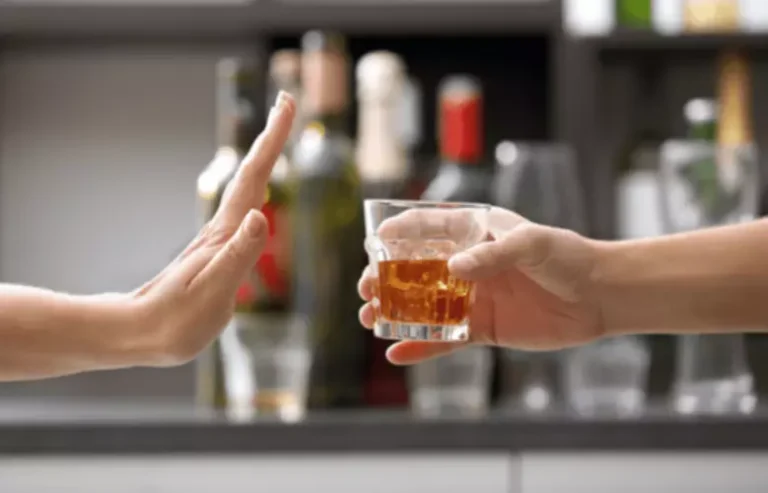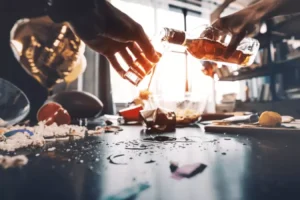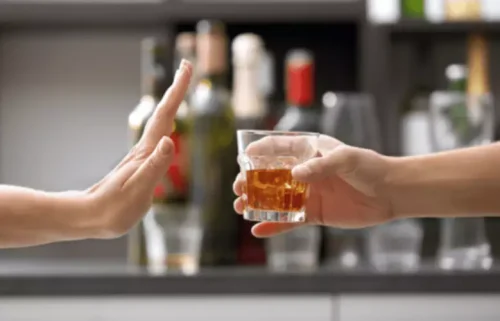
The best thing to stop your mind from thinking about the addictive is keeping yourself busy. With your brain preoccupied, it’ll be a lot simpler to keep your mind off your craving. It’s not just what you do with your body—it’s what you put into your body.

Tolerance and Substance Dependence
And that reaction frequently manifests in an urgent need to escape, any way we can. The addiction has caused you severe financial stress or legal problems. Addiction is damaging your professional life and threatening your ability to make a living. You would like to restore damaged relationships with =https://ecosoberhouse.com/ children, a spouse or other family members. At this stage, the substance becomes a necessary part of daily functioning, not just a choice. Tolerance is an early indicator of both physical and psychological dependence, as a person must use more to reach the same level of intoxication.
Whole Person Care

Drug rehabilitation at Royal Life Centers includes intensive therapies and other proven effective methods of addiction treatment. A trigger is different for every person but usually involves stress, anxiety, a reminder of a traumatic event or other emotional pain. The person struggling with addiction will then crave the substance that provides instant relief from the negative feelings. In the next stage of the cycle, the person will lose their resolve and consume the substance. After the effects of the drugs or alcohol drug addiction wear off, the person will then develop feelings of guilt, remorse, shame, and dissatisfaction from being unable to show restraint.
Steps to Successful Rehab
It is imperative to find new friends and people to spend time with if you’re serious about eliminating addiction from your life. Surround yourself with sober friends, people who love you, care for you, and want to see you succeed. At this stage of addiction, quitting by oneself can feel impossible. For many people, attempts to quit are followed by intense mental and physical cravings that can feel overwhelming. In this stage, people may use substances to relieve physical or emotional pain. They may use substances despite any negative effects on their personal, home, social, or work life, as well as on their physical and mental health.
Emotional Trigger
Also, this increases the chances of relapsing into your addictive behavior. Luckily, there’s a better way of coping with your daily struggles through meditation, an ancient practice that helps your mind feel calm and relaxed even during traumatic times. Examples of activities that can help you keep yourself preoccupied include reading a book, watching the TV, taking a walk, or talking to a friend. Such activities help distract your brain from thinking of the addictive behavior or possible triggers, preventing a relapse. Addiction can cause individuals to lose control of their substance use. It can negatively impact various aspects of someone’s life, such as relationships, professional careers, and overall health.
- Addiction is a cycle that entraps individuals in a pattern of use, tolerance, dependence, and pursuit of often harmful substances or behaviors.
- When she lost her job after coming in drunk, she tried to get sober.
- If you believe that you fall within one of these stages of addiction, remember that help is available.
- This increases your blood pressure and lowers your immune system.
- Typically, inpatient rehab treatment programs last 30 days, 60 days, or 90 days.
- If you have a co-occurring mental health condition like depression or anxiety, look for treatment centers offering dual diagnosis programs.
Reenacting Trauma in the Addiction Cycle
And as they continue to increase use, they become physically and mentally dependent on the drug. Reaching out for help is the first step towards getting sober. It takes a lot of courage, and it’s okay to feel scared or unsure. Just remember, starting the process of addiction recovery makes you incredibly strong. While there’s no quick fix or magic “cure” for addiction, people can absolutely achieve long-term recovery.
Breaking the Cycle of Addiction
- Detoxification, commonly known as detox, refers to the physiological process of eliminating harmful substances from the body.
- It helps you stay on track and avoid those high-risk situations.
- What is important is that you learn from your relapses, identify what went wrong, what you can do right next time, and that you don’t give up.
- Sometimes we act on our habit to head them off before they even fully arrive.
Cryptocurrencies, like Bitcoin, are digital currencies that don’t rely on banks to secure transactions. Cryptocurrency has become increasingly popular recently, with 16% of Americans reporting investing cycle of addiction in it1. As cryptocurrency trading rises, it’s essential to talk about how this activity can affect mental health….
Compulsive Personality Disorder Test: An In-Depth Guide
Identifying these risk factors can help you avoid them and break the cycle of addiction. It affects the parts of your brain that make you feel good. When you use drugs or alcohol, or engage in addictive behaviors, your brain gets flooded with happy chemicals.

What is Withdrawal?
The longer someone continues the ritual of addiction, the deeper entrenched it becomes, and the harder it can be to break the cycle. Remember that addiction is a disease, and recovery is a journey. With the proper support, treatment, and confidence, your loved one can break the cycle of addiction and live a fulfilling life. It teaches people how to cope with triggers and mend relationships with family and friends.